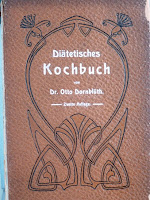ANYway, while on that trip I decided to sit down and just start writing the thing already. After all, eating an elephant begins with the first bite. So I expanded the chapter outline from one of my many grant proposals into three whole pages of text. I was 1% done! More importantly, it felt really good to have gotten "over the hump," as if I had finally acquired enough activation energy to start the reaction of writing. You see, I had been planning to wait until I had read "everything" and had a bird's eye view of my sources to draw out an argument. But that sort of wait-and-see methodology risks becoming procrastination while reading "just one more book," because I know that I prefer the passivity reading to the activity writing. So I feel good about exercising some discipline to write about things as I encounter them and have about 20 pages now.
From reading colleagues' work, I know that first dissertation chapters tend to run on the long side (60+ pages), as the author figures out what he or she is arguing. As my undergraduate thesis adviser told me, "You can't edit what you haven't written yet." So some of the pages I have written will probably be condensed down into paragraphs, or even sentences, as I distill my notes into a concise argument in 30 or 40 pages. I can't help but feel a little miffed, however, that the effort that went into all those pages will likely go unnoticed, and I am tempted to workshop a long version of my first chapter, just so that someone read all this stuff that I've been writing!
Here is where you come in, Dear Reader. I assume most of my ramblings are not interesting to you until I figure out what it is that I am arguing, but the following snippet of text will at least give you an idea of the shape of the project. While in a punny mood one evening, I realized that--if I didn't over do it--I might be able to present my dissertation using the metaphor of multi-course meal. At the end of the Acknowledgments section I lay out what amounts to a menu of what will be served in the pages to come:
In keeping with the theme of food and foodways, one could describe this dissertation as an eight-course meal, with each section or chapter representing a different course. The Acknowledgements are like the soup course: “to stimulate the stomach, not weigh it down.”* The Introduction to my theory of the “telescopic body” is meant “to flatter the gums,” as Henriette Davidis thought appetizers should. I will build my case in the succeeding chapters. With Chapter One, the starter, we have reached the main courses. Davidis suggested a light meat such as steamed poultry, or fish; I will review the by-now familiar history of the development of the New Knowledge of Nutrition in the first three decades of the twentieth century and offer a novel case study on the rations for the sick in Dresden during World War I. According to Davidis-Holle, the entree should be the most complicated dish and the highlight of the meal; Chapter Two will attempt to close the reception loop from producers of scientific information about the healthiest way to preapare vegetables to uses of that same information, namely housewives and the canning industry. By convention the next course consisted of either a roast with compote or a warm pudding: comfort food for a chapter that takes place at home. Chapter Three explores foodways in the ordinary kitchens in both city and countryside. Chapter Four returns to the topic of eating for health/food for the sick (Krankenkost), an apt parallel for the course of light vegetables without meat. The seventh, dessert, course concludes the meal; whereas a middle-class German Hausfrau might have served a torte or ice cream, I will summarize my argument and indicate what changed between 1900 and 1933/5 and what remained the same. The Epilogue looks at the concept of the Volkskörper and its fate up to the present; those who are sated may skip this course, as one may pass on the cheese, fruits, and sweets at the end of long and filling banquet. Finally, to give the reader a “taste” of early-twentieth-century Germany, I have opened each chapter with a representative selection of recipes. Guten Appetit!
*--Davidis-Holle, Das Praktische Kochbuch (1901), 740.

